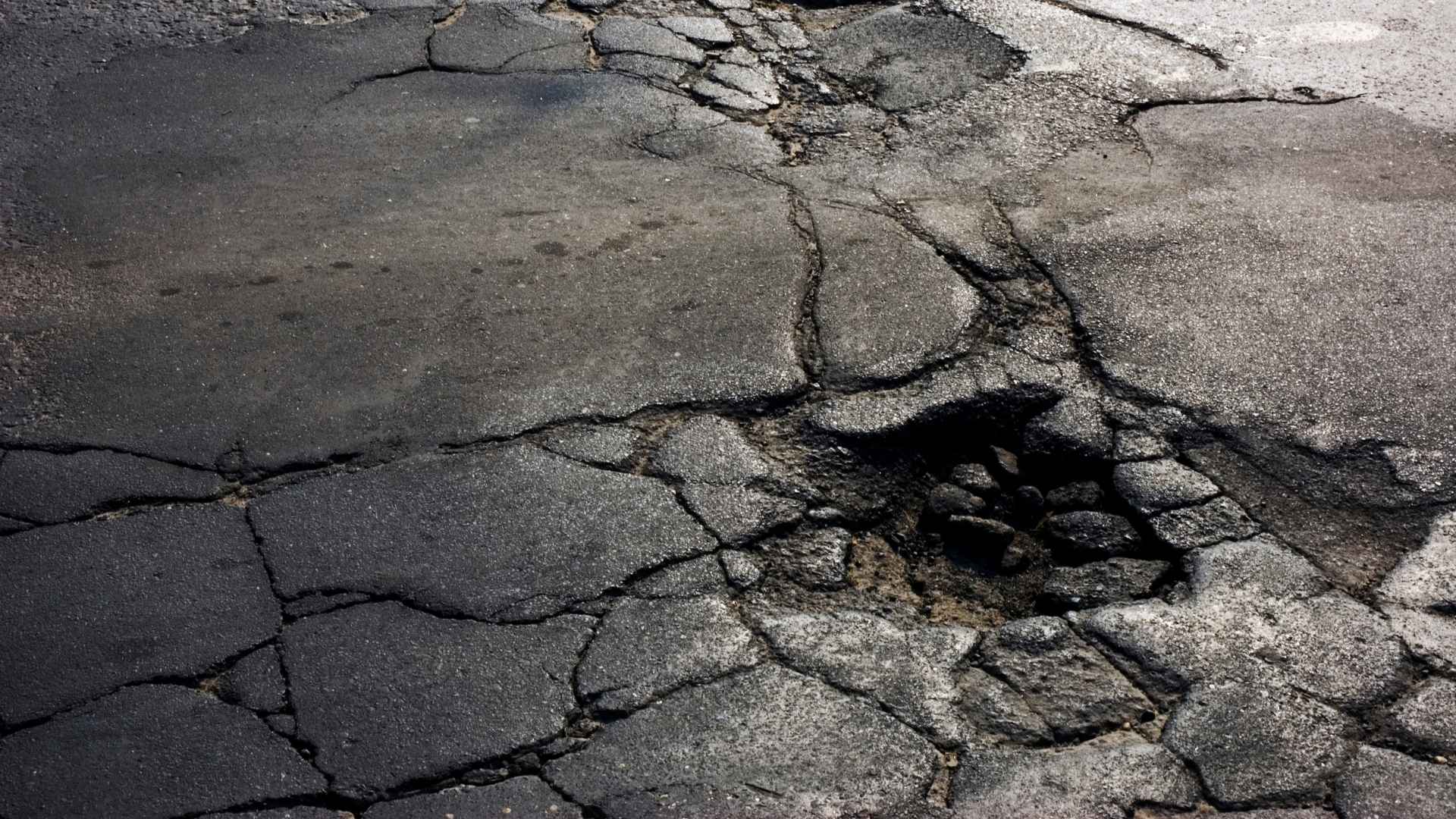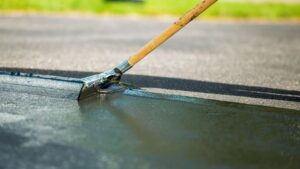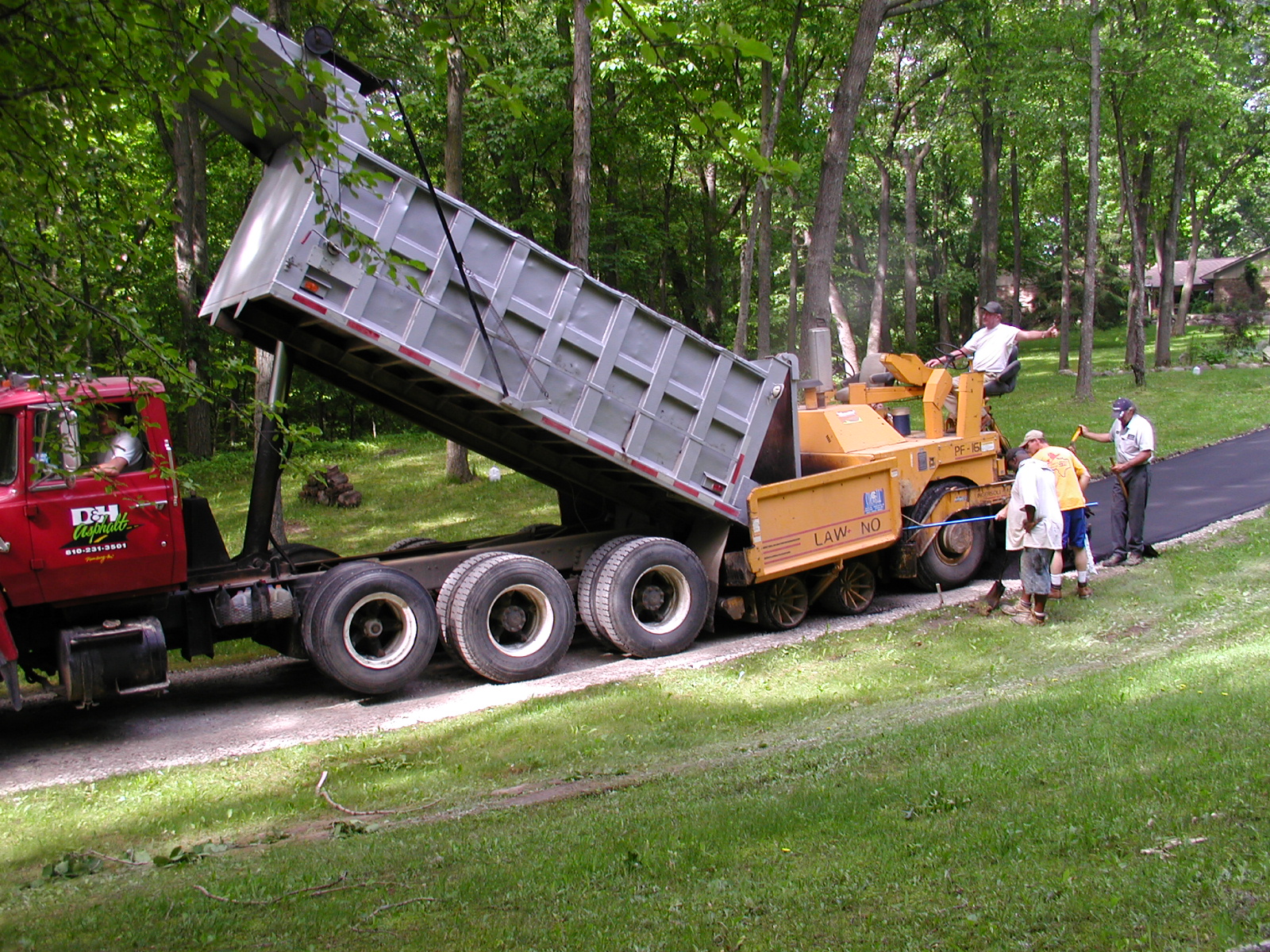Your driveway is one of the first things people notice when they arrive at your home, and it plays a big role in your property’s overall curb appeal. More importantly, your driveway needs to be safe, durable, and functional. But like anything exposed to the elements, asphalt driveways don’t last forever. Weather, traffic, and time eventually take their toll. Knowing when your driveway needs asphalt repair can save you money, prevent further damage, and extend its lifespan.
If you’re unsure whether your driveway is due for repairs, there are several warning signs to look out for. Below, we’ll cover the top five signs your driveway needs asphalt repair, why they matter, and what you can do to restore your driveway before it becomes a bigger problem.
1. Cracks in the Asphalt
One of the most obvious signs that your driveway needs asphalt repair is the appearance of cracks. Cracks come in different shapes and sizes, and they all signal that your asphalt is under stress.
- Hairline cracks: Small, thin cracks might not look like a big deal, but they allow water to seep into the surface. When water freezes and thaws, it expands and contracts, widening those cracks over time.
- Alligator cracking: This type of cracking looks like the scales on an alligator’s back. It indicates structural issues in the base layer of your driveway and usually requires more extensive repair.
- Edge cracks: Cracks along the edges of your driveway are typically caused by poor drainage or vegetation growth.
If left untreated, cracks will only get worse and lead to potholes or significant structural problems. That’s why timely crack sealing is essential. According to the Federal Highway Administration, small preventive maintenance steps like crack sealing can significantly extend the life of asphalt surfaces.
2. Potholes Forming
Potholes aren’t just an eyesore—they can damage vehicles, cause tripping hazards, and lead to liability issues if someone gets hurt on your property. Potholes form when water seeps through cracks, erodes the base layer, and weakens the asphalt until it collapses under the weight of vehicles.
If you’ve noticed potholes forming in your driveway, this is a clear sign your driveway needs asphalt repair. Small potholes can sometimes be patched, but if they keep coming back, your driveway may require resurfacing or even a complete replacement. Addressing potholes early not only keeps your driveway looking good but also saves you from bigger expenses down the road.
3. Drainage Issues
Water is asphalt’s worst enemy. When your driveway doesn’t drain properly, puddles or standing water can form on the surface. Over time, this water penetrates small cracks and weak spots, accelerating the breakdown of your asphalt.
Signs of poor drainage include:
- Water pooling in low spots after rain
- Erosion around the edges of your driveway
- Uneven surface levels
Good drainage design ensures water flows away from your driveway instead of sitting on it. If your driveway is holding water, it’s a red flag that your asphalt needs attention. Sometimes, minor grading adjustments can fix the problem, but in other cases, resurfacing may be necessary to restore proper slope and drainage.
4. Fading and Discoloration
Fresh asphalt has a rich, deep black color. Over time, exposure to the sun’s UV rays, oil leaks, and weather conditions cause your driveway to fade into a dull gray. While fading alone doesn’t always mean structural damage, it is a warning sign that your driveway is losing its protective surface layer.
Fading is often an indicator that your driveway needs sealcoating. Sealcoating not only restores that dark, polished look but also adds a protective layer to guard against moisture, chemicals, and UV rays. If you’ve noticed your driveway looks worn out, it’s a good idea to invest in preventive maintenance before deeper issues like cracking or potholes appear.
5. Uneven or Sunken Areas
Have you noticed parts of your driveway that look wavy, uneven, or sunken? This is a major sign that your driveway needs asphalt repair. Uneven surfaces usually mean the foundation beneath your asphalt has been compromised, often due to poor installation, drainage issues, or soil erosion.
These problems can create hazards for walking and driving. They also allow water to pool in low spots, further weakening the structure of your driveway. Repairing sunken or uneven asphalt typically requires removing and replacing the affected sections to rebuild a stable foundation.
Why Timely Repairs Matter
Many homeowners put off repairing their driveways because small cracks or fading don’t seem urgent. However, waiting too long often leads to more expensive repairs or even full replacement. Asphalt problems don’t fix themselves—they only get worse.
Here’s why timely repair is crucial:
- Cost savings: Fixing cracks or potholes early is much cheaper than resurfacing or replacing your driveway.
- Safety: Uneven surfaces, potholes, and cracks pose tripping hazards for pedestrians and can damage vehicles.
- Curb appeal: A well-maintained driveway boosts the appearance and value of your home.
- Longevity: Preventive maintenance can add years to your driveway’s life, saving you thousands in the long run.
How Professionals Repair Asphalt Driveways
If you’ve recognized one or more of the signs above, you might be wondering what comes next. Depending on the severity of the damage, asphalt contractors typically recommend one of these solutions:
- Crack sealing – Seals small cracks to prevent water infiltration.
- Pothole patching – Fills damaged areas with fresh asphalt to restore strength.
- Sealcoating – Adds a protective layer to prevent fading, cracking, and weather damage.
- Resurfacing – Applies a new asphalt layer over the existing driveway for a fresh, durable finish.
- Full replacement – In severe cases where the base is damaged, a complete rebuild may be necessary.
Professional evaluation is the best way to determine which solution your driveway needs. Contractors can assess the extent of damage and recommend the most cost-effective and long-lasting repair.
Final Thoughts
Your driveway is an important investment, and keeping it in good condition is essential for both function and appearance. From cracks and potholes to fading and drainage issues, there are several telltale signs that your driveway needs asphalt repair.
By addressing these problems early, you’ll save money, protect your property, and extend the life of your asphalt.
If you’ve noticed any of the warning signs we covered, it may be time to call a professional asphalt paving contractor for an inspection. D&H Asphalt is proud to offer 100% free estimates.






